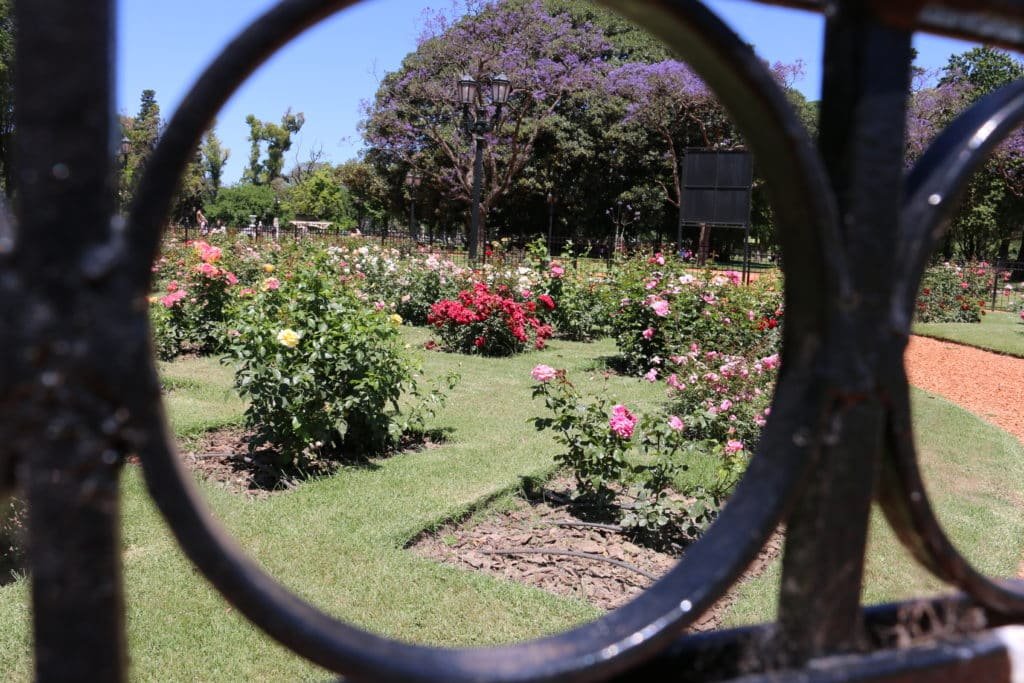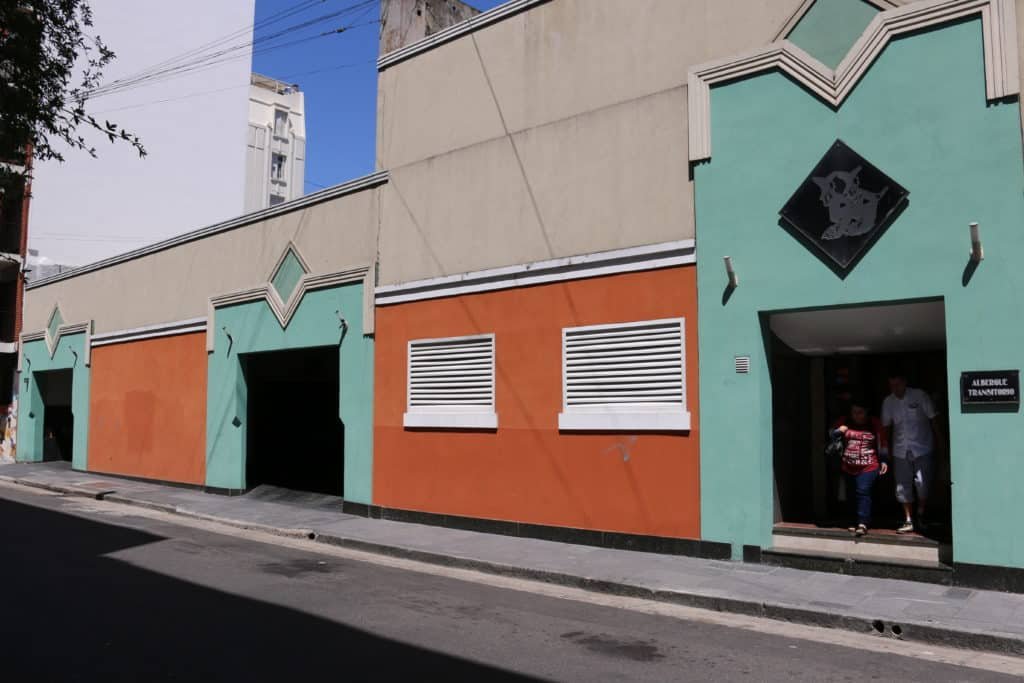by John Bechtel | Aug 27, 2017 | Argentina, Freelance Writer, South America

The Ibera Wetlands, and the Ibera Lagoon, the second largest pristine wild paradise left in the world.
I am in Mesopotamia. No, not that Mesopotamia. Not the location of the ancient Babylonian empire and the modern state of Iraq in the Middle East. In another time and place I would have put that Mesopotamia high on my bucket list because the plains of the Tigris and Euphrates rivers were one of the cradles of civilization and history holds special fascination for me. Unfortunately wars and conflict of the last twenty years have been very effective in obliterating not only the present lives of that Mesopotamia’s inhabitants and their culture, but in many of its areas, travelers are beheaded for the unforgivable offense of intruding on their world.
The Mesopotamia where I now find myself in the far northeast of Argentina was originally populated by tribes that found their way here from another, less well known cradle of civilization known as the Amazon basin. They spoke variations and dialects of a language called Guarani. Other tribes from the Amazon basin migrated westward to the mountains and highlands of the Andes, and which in many parts of South America are today collectively referred to as the Quechua cultures.
The Guarani however migrated gradually southward through what is today Brazil, Paraguay, and Argentina. This long preceded the arrival of the Jesuit missionaries and the Spanish conquistadors. Many of these Amazonian tribes also did a lot of beheading, and we know this because archeologists have discovered large caches of shrunken heads, with the skulls and other contents removed, and stuffed with various materials. A quaint custom indeed, and one of technology’s first experiments with miniaturization. So the victors shrank heads, and the losers ran for cover. No one knows for sure why the Guarani were moving south through the continent, but it’s pretty likely they were running from someone. One recent and authoritative source says head shrinking is still taking place in some remote parts of the Amazon.
This story began in the Amazon basin
There is far more known about the highland, Andean cultures in South America because the artifacts of their civilization were often made of stone, found everywhere in great abundance. Buildings and tools made of stone, left undisturbed, such as in burial tombs, last for thousands of years. However the forebears of the Andean peoples lived in the jungles, rainforests, wetlands and swamps of the huge Amazon basin, and the jungle reclaimed most vestiges of those who once lived there. It is only in the last twenty years that evidence is surfacing of vast Amazonian civilizations with causeways, roads, and irrigation canals that stretched for hundreds of miles, and which radiocarbon dating is placing thousands of years before the Egyptian pharaohs.
Now let’s fast forward to August, 2017 when a certain enterprising (or delusional) travel and culture writer named John Bechtel decided to backpack around eight regions of Argentina in the hopes of creating a comprehensive English-language survey of the history and cultures of the country. The sojourn begins with an introduction to an intellectual who is retiring this year as the director of the Argentine version of Junior Achievement, well known everywhere in the U.S. for introducing young people to the possibilities of entrepreneurship and to real entrepreneurs, people who have successfully built businesses.
(more…)
by John Bechtel | Jul 23, 2017 | Argentina, Buenos Aires, South America

This is my friend Matthew. His family is from El Salvador. He is going to be a fine young man, as you can see from this picture. He is already preparing for one of his first rites of passage, with the help of his Dad. Matthew and his wonderful family now live in Florida.

These are Matthews two sisters, from left to right, Elizabeth and Tiffany. These are some of my best reasons for traveling. Sometimes they bring their culture and kindness to you, and sometimes they just show up in your life, and enrich it more than they could know. But once you meet them they change your life forever.
Greetings again from Buenos Aires. I arrived on July 10, and of course I have a plan. It’s a bit ambitious, maybe even a little over the top. Argentina is a very large country, the eighth largest in the world for area. It is about 2/3 the size of the continental U.S., and it has virtually every type of topography and climate imaginable, from glaciers to deserts to jungle to very high mountains (including the 2nd highest in the world after Mt. Everest as measured by the topographic prominence method of height) to vast savanna. I have divided the country into eight regions, and I intend to spend about three months in each of those regions exploring, interviewing, photographing, and writing for publication. I will use the internet and referrals to find lodging with families in their homes. How better to learn the history and culture of a country than to hear it from those who have spent their lives there? I will leave Argentina periodically for travel assignments to other parts of the world, but will return to Argentina as my base of operations. At the end of the project I will write and seek a publisher for a comprehensive English-language cultural history of Argentina, as told to me by Argentines.
(more…)
by John Bechtel | Jan 13, 2017 | Argentina, Buenos Aires, Puerto Limon Hostel, San Telmo, South America

A rare photograph of Marina with her buddy Rick. We never figured out who was mentoring who. Marina, who is Russian, for some reason was photo- phobic and we always joked with her about being on the run from the KGB. Or working for them. (At Puerto Limon Hostel nothing is sacred and sooner or later everyone becomes the butt of some kind of good-natured joking.)
Marina is gone. She left us (again) about a month ago and disappeared into the mists and fog of rain-drenched Buenos Aires. She said she was going back to Germany, where she insisted she was not from. Marina Zubkova claimed she was Russian, but as far as I know, no one ever verified that by looking at her passport. We had a lot of people passing through Puerto Limon claiming to be one thing or another. Writers with no laptops, Swiss bankers trying to borrow other people’s cell phones to communicate with Panama; you never knew. But Marina probably was Russian. For one thing, she knew how to make borscht. And even though she spoke fluent German, she never wanted to be referred to as a German. So of course, we all borrowed a line out of Fawlty Towers: “Don’t mention the war!”
We loved Marina. We still do. We have dozens of photos of her holding her hands in front of her face when she thought we were taking her picture. Marina got teased a lot, but she always rose to the occasion, and we all got accustomed to her querulous voice rising to the pretend accusations, both parties betrayed by the shitty grins on their faces. Marina is very bright (English is her third or fourth language), and very diligent, responsible, and supremely organized. That’s why we wondered if she wasn’t secretly a German. Marina never shirked her duty. But the Russian in her could never admit things were good. Marina never had enough rest, and if you pointed out the good things that were happening, Marina’s rejoinder always began with “Yes, but . . . ” When Marina went out with a group, like any Marine, she always made sure everyone got home safe. She never left anyone behind.
Marina always gave back. She ate my bananas, but she taught me Excel. And if I asked her for help, she never turned me down. She would even apologize for making me wait sometimes until she could get to it. She taught me how to use my camera. If something didn’t work right, she couldn’t leave it alone until she figured it out. She never refused a beer.
(more…)
by John Bechtel | Dec 20, 2016 | Argentina, Buenos Aires, Puerto Limon Hostel, South America

From the left: John Bechtel, freelance travel and culture writer; Joshua Kelsey, scholar, linguist, backpacker; William Morgan, medical science researcher. They are waiting for Rick Powell, the chef of Puerto Limón Hostel, to make his appearance after preparing Lenguado Ceviche.
Puerto Limón Hostel, Buenos Aires
I have often been asked why I continue to live in Puerto Limón Hostel here in the San Telmo barrio of Buenos Aires. There are many travelers here who have far more experience than I do with hostel life in many countries. There are 50 beds in this hostel, and other than Rick Powell, an American from Indiana who has been here for eight years, I now have the most seniority. I have become a long-term guest and I have remained here because it serves my purposes for coming to Argentina in the first place.
In the last five months I have met people from 39 countries from right here in the Community Room of Puerto Limón Hostel. This hostel has a cozy feeling to it, a touch of Tuscany, let’s say. It’s air conditioned, very clean, and well organized. But I could get all of that and more in a hotel, albeit at a higher price. What I could not get in an apartment, a home, or even a popular bar, is the opportunity to meet and engage with all these people. I find this very soul-satisfying. Relatively speaking, there are few Americans who come through here. But just last week I met the exception, the very exceptional William Morgan, a retired medical science researcher at the university level, whose specialty was malaria.
(more…)
by John Bechtel | Nov 24, 2016 | Buenos Aires, Freelance Writer, Puerto Limon Hostel, South America

The traveler
For this particular Thanksgiving Day, we will leave the worries of the world at the door and travel themeless, timeless, but not thoughtless. Here are thoughts, sights, sounds, smells, and springtime pleasures from travelers at the Puerto Limon Hostel in Buenos Aires.
The Traveler: The traveler has no safety net. At home the familiar and unchanging serve as a safety net. But the traveler needs to be in the zone, and in the flow. Otherwise he can get lost with no one to help him. He can’t bother with worry or fear. So he allows for everything and can know nothing for sure, trusting that in the end things will be as they need to be.

This is a recently published article I wrote about how the Finns stole the tango from Argentina and rebranded it to their own culture. Click on the picture to read the entire article.

Rose garden and jacaranda trees in November
In the springtime, the mind turns to love, and in Buenos Aires business picks up for the transitorios. Lunfardo, or Buenos Aires slang popular in the neighborhoods where the tango also began, had a special word for where lovers met. One characteristic of lunfardo is that it reverses the order of syllables, so that hotel becomes tel-ho. But in Spanish, the “h” is silent, so telho is pronounced as telo. On the street a telo is lunfardo slang for a transitorio, one of which is directly across the street from Puerto Limon Hostel where I have stayed for the last four months.
So what is a transitorio? It is a place where you can rent rooms by the hour in order to have sex—but it is not a whorehouse. Far from it.

A Buenos Aires “telo” or transitorio, where you can have privacy, discretion, and imagination for a reasonable price.
The lodging is provided, but not the partner.
(more…)
by John Bechtel | Sep 3, 2016 | Argentina, Buenos Aires, San Telmo, South America

Talented Jorgia from Bahia, Brazil misses the action-orientation and passion of her home country.
One of the things I am enjoying about hostel life is that this place is a beehive of cross-pollination. What is heard here is unfiltered by teams of experts who determine what the public should or shouldn’t hear, or the politically correct interpretation that should be given to events or ideas under discussion. In a month’s time I have lost count of how many countries have been represented here, but I suspect it is close to two dozen or more. I am sometimes amused (and alternatively annoyed) when someone asks what are Argentines like, or what do they think of Americans, as if there is an Argentine mind or an American character. It is a common enough practice, but the following are excerpts from very individual (and sharp) minds culled from the noisy life of Puerto Limon hostel in San Telmo barrio of Buenos Aires. And they have opinions and experiences you may not have heard on CNN.
Are Argentines Passive?
Take Jorgia, for example, a former staffer pictured here, who went on to a teaching job somewhere. Jorgia is from Bahia, Brazil and when she completes her education here she intends to return to Brazil. Her mother tongue is Portuguese, but she also speaks Spanish and impeccably fluent English. She was a quick student as a child and she has adapted well here from all appearances. Jorgia says she gets a little homesick and she doesn’t like certain behaviors she considers common among Argentines. She feels they are too passive and gave as an example when riding on a city bus if the driver fails to stop at a scheduled location, indifferent to the people who have been standing patiently in line for the bus to stop, Jorgia says the people on the bus will say nothing, while back in her Brazilian community everyone on the bus would be yelling at the bus driver to stop; hey, didn’t you see the line back there?! The passengers wouldn’t let the bus driver get away with skipping a stop.
(more…)










Recent Comments